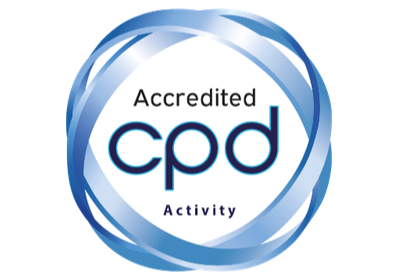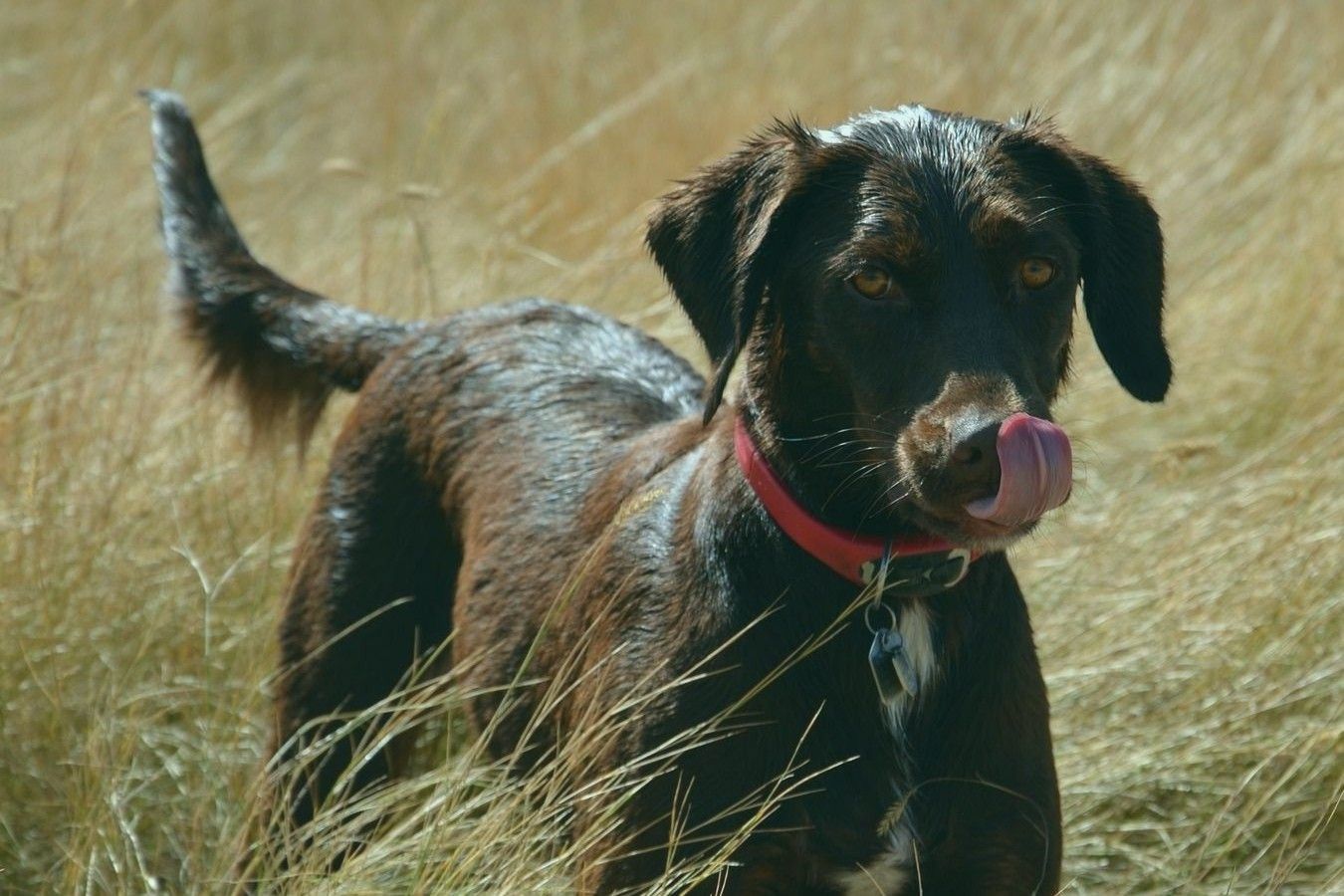
Canine Reactive Behaviour
CPD Accredited Advanced Certificate




Updated For 2025
How Do You Manage Your Reactive Dog?
Understand The Psychology And Physiology Behind Reactive Behaviour And Learn Positive Behaviour Management
Do You Need To Help A Dog With Canine Reactive Behaviour?
This course isn’t a quick fix promise, as they generally make things worse. It’s a lifelong, accurate understanding of how your dog feels and how you can help them feel better and therefore behave better. But it does work quickly when you learn and apply the knowledge.

This Course Is For You If....
- Your dog is a pussy cat at home but a raging werewolf outdoors.
- You wish your dog was calmer on walks.
- You struggle to cope when your dog sees another dog.
- Your dog barks and lunges at least once on every walk.
- You wish you could have a relaxing dog walk but always get home feeling more stressed than before you went out.
- You have blamed your dog for their behaviour and then felt awful afterwards.
- You have cried more than once after a dog all because you don't know how to help your dog.
- You think you should be able to understand your dog and blame yourself because you can't.
Sally Gutteridge
-
Author
-
Clinical Dog Behaviourist
-
Canine Principles Director of Studies
-
Founder of The National Institute for Canine Ethics
What's in the Course?
Basic First Aid & Emergency Response
-
Mastering Canine Health Assessments: Gain proficiency in performing health checks and understanding your dog's vital signs, a fundamental step in identifying health issues promptly and ensuring their wellbeing.
-
Safeguarding Your Environment: Learn the essentials of pet-proofing your home to prevent accidents, and compile a comprehensive canine first aid kit, ensuring you're prepared for any emergency.
-
Alleviating Discomfort: Acquire the skills to recognise signs of pain in your dog and provide first aid for minor cuts and wounds, mitigating their discomfort and preventing further complications.
-
Emergency Bandaging and Burn Care: Discover the techniques for applying bandages correctly and treating burns, an indispensable part of immediate care that protects your dog from infection and aids in the healing process.
-
Combatting Temperature Extremes: Understand the critical methods for managing life-threatening conditions such as heatstroke and hypothermia, ensuring you can stabilize your dog's temperature and prevent organ damage.
-
Tackling Bites and Seizures: Equip yourself with the knowledge to handle insect bites, stings, allergic reactions, and seizures, conditions that can escalate quickly without proper first aid intervention.
Handling Major Emergencies
-
Emergency Response Tactics: Delve into the strategies for responding to road traffic accidents and dog attacks, learning to act swiftly and effectively to minimize injury and maximize the chance of recovery.
-
Life-Saving Techniques: Become adept at emergency procedures such as clearing airway obstructions and performing canine CPR, crucial skills that can mean the difference between life and death.
-
Water and Electrical Safety: Explore first aid responses to less common but equally dangerous situations like drowning and electric shock, preparing you to act with confidence in these critical scenarios.
-
Emergency Muzzle Fabrication: Learn how to make an emergency muzzle, a vital skill for managing an injured dog who may react aggressively due to fear or pain.
-
Bone Injury Management: Understand the steps to address broken bones, including how to make and apply a temporary splint to immobilize injuries and prevent further harm.
-
Hemorrhage Control: Develop the expertise to control bleeding and recognize signs of internal bleeding, enabling you to take immediate action to reduce blood loss and stabilize your dog before professional help arrives.
Specific Conditions and Care
-
Foot and Nail Care: Discover how to treat broken nails and foot pad wounds, as well as burn injuries to the paws, ensuring your dog's mobility and comfort are swiftly restored.
-
Ear and Hearing Preservation: Learn to identify and treat common ear problems like otitis and hematomas, preventing discomfort and potential hearing loss.
-
Eye Care Emergencies: Gain insights into first aid care for various eye issues, protecting your dog's sight and alleviating pain with effective treatment strategies.
-
Gastrointestinal Troubles: Master the management of vomiting, diarrhea, dehydration, and the dangerous condition known as GDV, enhancing your ability to provide prompt and effective care for digestive disturbances.
-
Toxicity Challenges: Understand how to respond to different poisoning scenarios, including the ingestion of chocolate, equipping you with the knowledge to act quickly and reduce the risk of serious health consequences.
Course Completion
-
Revision Quizzes: Test your canine first aid knowledge as you study with interactive revision questions after each topic.
-
Tutored Assessments: Each module includes 5 questions with feedback from a Canine Principles tutor to guide you through your learning journey.
-
Canine Principles Certificate of Achievement: Display your new skills with pride and use the built in feature to share across social media platforms.
-
CPD (Continuing Professional Development) learning log to track progress: Download your CPD learning log to monitor and evidence your study.
-
Issuance of a CPD Certificate of Completion: Get an accredited certificate from the CPD Standards Office, including CPD hours
-
Participant feedback: Your chance to let us know what you think.
Certificate of
Achievement
NICE
Membership
Student
Discounts
Course Bundles Available
Anxiety+
Reactive Behaviour +
Fear
Save Over £70
Ready To Learn
What methods will I learn?
All Canine Principles Online Dog Courses have been written by qualified professionals with expertise on their chosen subject. Care has been taken to create a course library that is based on only the most up to date dog science.
Courses that teach dog training and behaviour will only ever follow the science of positive reinforcement and reward based training.
Who can join the programme?
The Canine Reactive Behaviour - Advanced Certificate has been created with everyone in mind. The aim of the course is to prepare people who work with dogs to understand the cause and effect of reactive behaviour in dogs.
The course can be studied by anyone with an interest in Canine Reactive Behaviour, however, some subjects and terminology require prior knowledge and may not be introduced in a logical progression.
Are there any course requirements?
-
Canine Principles e-Learning platform can be accessed instantly from any device with an internet connection.
-
Modules can also be downloaded for offline study.
-
Courses are written or recorded in English.
-
The minimum age for access to this qualification is 16 years.
How is the programme assessed?
The Canine Reactive Behaviour - Advanced Certificate is a tutored, online course with written assessments.
On successful completion of all assessment questions, you will be able to claim a certificate of achievement for use on your social media, website and marketing materials.
Is this course accredited?
All Canine Principles CPD courses are accredited by The CPD Standards Office. The CPD Standards Office have reviewed each accredited course for content and quality and set out the framework of learning objectives.
Provider Number:60082. Visit the website here CPDStandards.com
How many CPD hours will I gain?
The Canine Reactive Behaviour - Advanced Certificate has been awarded 50 hours of CPD. All CPD hours are evidenced with an additional CPD learning log and certificate from the accrediting body.
14 Day Satisfaction Guarantee
Guaranteed Security using one of the most advanced encrypted systems on the market.
Recommended For You
Share
Follow Us
Exclusive News & Offers
Canine Principles
#Dog Skills For Humans
-
Canine Principles is a trading name of
CANINE PRINCIPLES LTDRegistered Company Number 11458645VAT Registration Number: GB300008875CPD Provider Registered Number: 60082The CPD Standards Office
Student Guidelines
Welcome to Canine Principles
Each individual has their own strengths, weaknesses and acquired skills that will help or hinder in their study. This guide is intended as an example of best practice that can easily be included in your current study routine.
In 2014, A University of Illinois Study, led by Dr. Chuck Hillman, found that as little as 20 minutes of exercise can lead to better cognition and memory, and higher scores on tests and examinations. This is great news for dog owners and something that you can definitely take advantage of as a daily walker.
Limit Distractions
Distractions can easily break our train of thought or pull us away from study all together. Find a suitable place to study that is conducive to learning. Set some time aside, ask for some privacy and turn off your phone.
Stay Hydrated
Dehydration contributes towards fatigue and poor memory. A 2012 study, conducted by the universities of East London and Westminster, found that results improved by an average of 10% when students kept hydrated throughout exams.
Read Out Loud
In 2015, Professor Victor Boucher of the University of Montreal completed research that suggested you are 50% more likely to remember information that has been read aloud than reading to yourself. You can either find a quiet place to read aloud to yourself or read directly to a friend or family member.
Teach as You Go
A step beyond reading aloud is to describe the lesson to somebody else. Try and make the subject understood and invite questions. If you don’t have the answer to the question, you have a new area of understanding to explore and study which will help to further your knowledge in a given subject.
Make Notes and Diagrams
Keep a pen and paper close to hand and be ready to note down specific areas of interest. Even if you are not artistic, a quick diagram that only you understand is a great aid to the memory and allows you to process the information in a different way.
Research
Even when you feel that you have fully understood a subject from the course material, take some time to research further by looking online, reading books or talking to others who are involved in the subject. The study group is a great place to meet like minded people who are also learning new topics.
Review
Going back over previous course topics and modules, with the benefit of newly acquired knowledge, can help us to understand the connection between subjects. If we only focus on one subject in isolation, the connection may never be made.
Create Flash Cards
Flashcards are a great way to test your knowledge. Write a subject on one side of the card and then explain the subject on the opposite side. You can either draw the cards randomly and test your own knowledge or ask a friend to help.
Assessments will begin by advising the maximum possible score for each section and how this score can be achieved. Every module has an overall pass mark of 80%. Whilst the pass score is 80%, any assessment that scores below this will be returned with constructive feedback. Feedback is intended to describe where further marks can be achieved. You can re-submit a revised assessment to improve your score.
Assessments that score between 80% and 100% will also be returned with feedback, however, there will be no further grading as the threshold for passing the module has been met.
Each assessment will be marked and returned within 3 - 5 days of receipt by your tutor. If you have submitted an assessment and have not received any correspondence within 4 days, contact us here, via email or the study group to confirm the assessment has been received.
When you choose to include external research as part of your assessment, it is important that the work is clearly referenced. If you have previously studied at a higher level, you will be aware that there are many ways to reference your research. For the purpose of Canine Principles assessments, we are happy for you to include your references at the end of each answer.
References from online research can be included as a link to the source of the information:
Students are also encouraged to support each other, through access to a private study group where discussions and new information are shared daily.
Self-paced - All CPD Diploma Courses, CPD Certificate Courses, Workshops, Webinars and Self Study Courses are completely self-paced learning with no deadlines for assessments or completion.
Qualifications - All regulated qualifications inherit a 2 year registration period. The cost of registration is included with initial enrolment. When the 2 year registration period expires, students may re-register for an additional registration fee. Fees vary by course, please contact us for details.
Upon successful completion of your course, you will receive 2 certificates. The first certificate is supplied by Canine Principles and the second is supplied by the CPD Standards Office. All Certificates are available to download on successful completion and marking of the final exercise.
Upon successful completion of your course, you will receive 2 certificates. The first certificate is supplied by Canine Principles and the second is supplied by AIM Qualifications, an independent awarding body. Both certificates will be available as a digital downloads only.
These courses come with a single Canine Principles digital certificate of completion.
Students are also encouraged to support each other through built in student community and private Facebook Study Group. where discussions and new information are shared daily.
Ask Us A Question
Help Centre
Qualifications Canine Principles is an AIM Qualifications and Assessment Group recognised centre and has been approved to deliver AIM Qualifications. AIM Are an awarding body recognised by Ofqual.
Each qualification carries an 8 digit qualification number that can be referenced against the existing qualification framework.
CPD courses are accredited by the CPD Standards Office.
Enrolled courses can be accessed anytime via the student dashboard. Once you are logged in to you account, select your course and you will be taken directly to the learning materials.
Online elements require an internet connection and suitable device.
Course(s) not showing on dashboard
Skill-Hub courses are only available while there is an active subscription. Check your account to show the most recent payments and membership expiry.
Occasionally, students have more than one account as they have signed up for a free course or newsletter with a different email. Contact us using the form to solve this issue.
Email not recognised
Check all spelling is correct. Check the email account for previous correspondence from Canine Principles. If everything seems normal, contact us using the form to solve this issue.
Password Reset
You can manage your password here.
Manage subscription
You can manage your subscription settings directly from your student account page.
The 3 day free trial requires credit/debit card details to begin. Your card will be billed automatically when the trial expires and every month subsequently.
You can manage your subscription here.
Self-paced - All CPD Diploma Courses, CPD Certificate Courses, Workshops, Webinars and Self Study Courses are completely self-paced learning with no deadlines for assessments or completion.
Qualifications - All regulated qualifications inherit a 2 year registration period. The cost of registration is included with initial enrolment. When the 2 year registration period expires, students may re-register for an registration fee. Fees vary by course. Please contact us for details.
Students are also encouraged to support each other through built in student community and private Facebook Study Group. where discussions and new information are shared daily.
Ask Us A Question
Sit! Stay! Wait!
Remember To Enrol On
Your FREE Course

Loose Lead Walking
Qualifications

